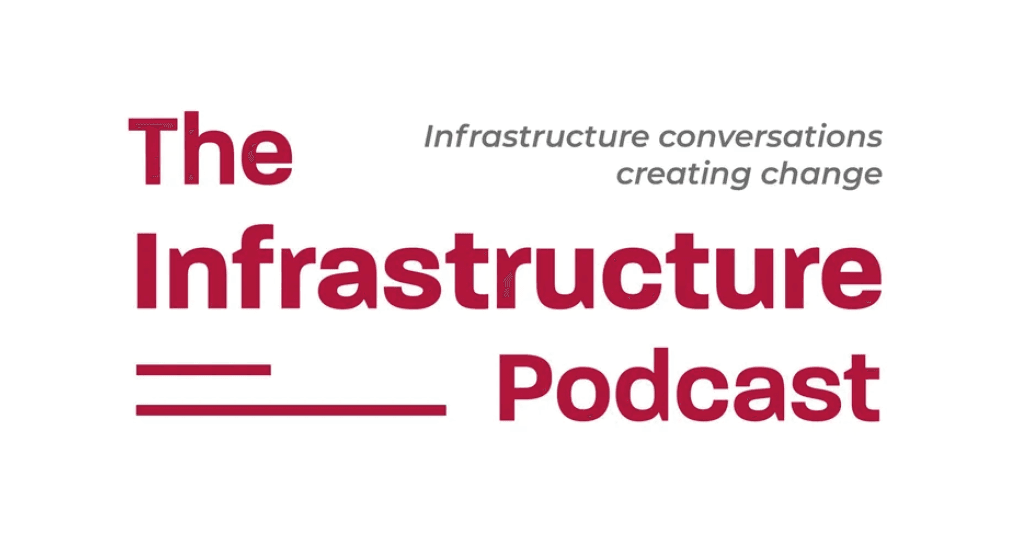Infrastructure Podcast: Why infrastructure leaders need to understand the importance of risk management.
This week our CEO, George Hutchinson sat down with infrastructure journalist and commentator Antony Oliver to discuss why it’s so important that leaders of the UK’s infrastructure sector understand risk management.
You can listen to the full pod here or check out our highlights below.
Highlights
How can a sector that focuses on performance, safety, operational and budgetary risk be missing out on reputational risk?
Antony kicked off the conversation by asking George why reputational risk seems to be so elusive to leaders in the infrastructure sector, and is determining reputational risk the same as operational or safety risks?
George’s top points:
- The reason that reputational risk seems to be set apart from the other common risks, that are forefront of infrastructure leaders’ minds, is because reputational risk is a secondary risk. It arises when a critical risk, like a health and safety incident occurs and these have long-term consequences for reputation.
- An excellent example of this in action is Railtrack, a company that doesn’t exist in the UK today because it didn’t manage the reputational risks that came out of its operational failures. This gave the Government the ability to close the company, because it was so unpopular.
- A lot of companies today aren’t considering the consequences of the big decisions they make. For example, a number of companies are dealing with reputational crises that have come out of behavioural risks and incidents. Just last week, the CBI faced a vote of confidence from its members because behavioural risks and incidents from their leadership became a reputational risk that was systemically threating to their very survival.
The pair went on to discuss River Effra’s exceptional research Under Pressure that outlines the biases and behaviours that trip leaders up when they’re making decisions in a crisis.
George’s top points:
- Organisations are trained to manage a crisis through plans and a process, and while this is critical it’s not the only factor in managing reputational risk. If you look at the Metropolitan Police service, who would say they’re getting their reputational risk right? This is an organisation that has gold, silver and bronze response plans, but it’s the strategic decisions they make, while under pressure, that makes all the difference to their reputation.
- Leaders in infrastructure settings can suffer from ‘technically correct’ bias. They understand that decision behind how they’re acting is technically correct, however, what they don’t consider is public opinion, and whether technically correct decisions are actually right for customers or key stakeholders.
- In elite sport we create an arena that puts brilliant people under extreme pressure, it’s then not about technical capability, each premier league footballer has the technical capability to score a penalty, but it comes down to your ability to perform under pressure.
- Understanding your leadership’s biases can help you understand where that leader will take the organisation in the face of a crisis. In a crisis they have:
- An alien environment
- Limited information but a need to make quicker decisions
- Their past decisions being called into question
and this can create challenging behaviours, which ultimately lead to poor decision making.
Top take aways for infrastructure operators and businesses
Risk aversion
- The point of the work River Effra does is to make organisations risk aware, not risk averse. When businesses become risk averse they don’t do what they need to, risk aversion can destroy creativity. However, before you act, you need to be risk aware and then consider whether your customers and audiences are in the same place, with the same risk appetite.
Lawful bias
- If you’re the CEO of an organisation and you’re operating within the regulatory framework, but you and your team believe the standards are wrong, consider two things:
- Is what your organisation is doing sensible?
- Would the public accept what you’re doing?
If the answer to either of these is no, you need to be highlighting the problem to your regulator and asking for more investment in that area.
Health and safety
Antony asked George what advice he’d give residential developers in the face of post-Grenfell legislation.
- The ability to sell property is an essential part of its value, but if you’re building housing that doesn’t meet the standards where it can be sold on, you’re effectively destroying your own marketplace. Short term profit can have major, long-term consequences.
Words are a partial response
- A PR campaign can get you out of a tricky spot if you’re dealing with a perception-based problem. However, if your reputational risk is secondary to a critical risk, you need to solve that problem first. Deal with the issue because then comms can follow, and great comms can help. But if you paper over the cracks the problem can only get worse.
- Leadership should ensure they have a set of trusted advisers who will call out when things are going wrong. Leaders should listen to advisers even when what they’re saying is uncomfortable
Thank you for reading. For more insights please visit our blogs directory and insights page.

